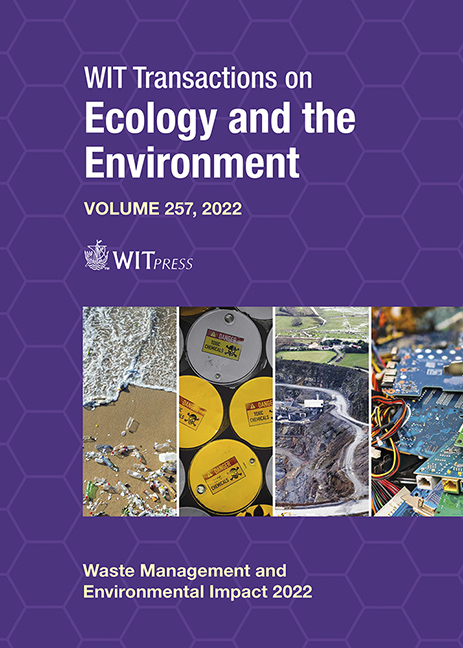MACHINE LEARNING TECHNIQUES APPLIED TO THE VEHICLE ROUTING PROBLEM FOR WASTE SITE INSPECTIONS
Price
Free (open access)
Transaction
Volume
257
Pages
12
Page Range
133 - 144
Published
2022
Paper DOI
10.2495/WMEI220121
Copyright
Author(s)
FRANCESCO NEBULA, ROBERTO PALUMBO, GABRIELLA GIGANTE
Abstract
During past decades, illegal acts of waste dumping occurred many times in the Campania region of southern Italy. Tons of waste have been dumped in agricultural areas and often illegally burned posing serious health threats to the neighbouring population. Authorities are trying to mitigate such phenomenon by means of continuous monitoring and through actions of remediation. Nevertheless, the number of sites to be visited is often very high with respect to the resources that can be deployed on the territory (such as personnel, patrols, etc.). At the same time, these resources are limited and therefore they should be used in an optimized way. In addition, patrols have to comply with assigned time constraints, considering both the travel time and the time needed to inspect the site. Currently, the tours are assigned by human operators according to their own experience but this solution is highly inefficient. Therefore, a computational tool capable of finding optimal inspection tours in reasonable time is highly desired. For this reason, an appropriate process of risk assessment and priority assignment was set up in order to put in place an optimal resource management from an operational point of view. This work confronts the problem of finding the vehicle routes in a way that a “priority index” is globally maximized. This kind of problem belongs to the class of NP-hard problems and it cannot be solved exactly in practicable time even for a few sites. This paper explores the application of some machine learning techniques to solve the described problem, also performing a comparison with the results obtained using a classical heuristic algorithm taken from literature. In more detail, the use of data clustering and Monte Carlo Tree Search approach is investigated with satisfactory results.
Keywords
vehicle routing problem with profits, clustering, Monte Carlo Tree Search




